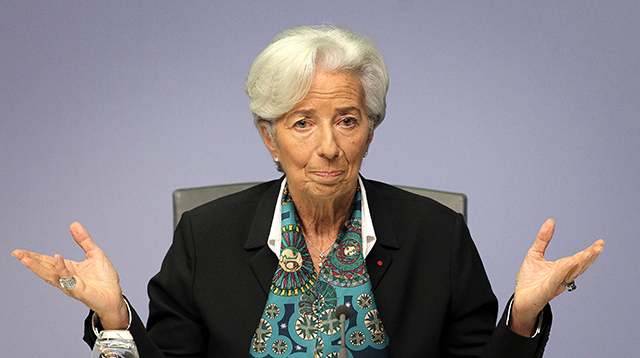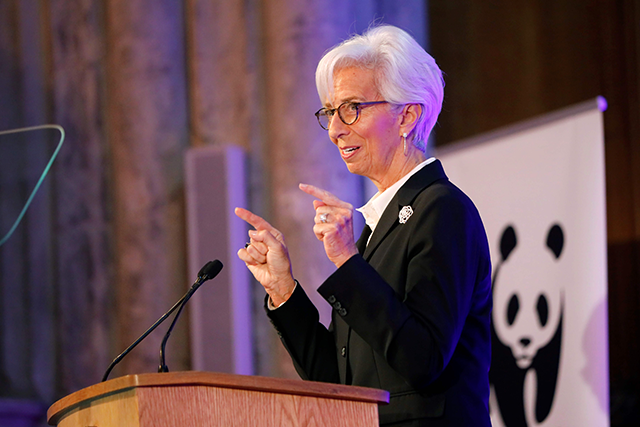You are here
ECB's Lagarde 'not overly concerned' about new euro crisis
By AFP - May 27,2020 - Last updated at May 27,2020

President of the European Central Bank Christine Lagarde addresses the media during a news conference following the meeting of the governing council of the ECB in Frankfurt am Main, on December 12, 2019 (AFP photo)
FRANKFURT AM MAIN — European Central Bank (ECB) chief Christine Lagarde said on Wednesday she was "not overly concerned" that the coronavirus pandemic could renew fears of the eurozone breaking up, after a report from the Frankfurt institution highlighted the danger on Tuesday.
"I'm not overly concerned about it" although "policymakers will have to continue watching" mounting debt levels in the eurozone as governments borrow to cushion the coronavirus' effects, Lagarde said in a video stream addressed to the single currency bloc's young people.
In a twice-yearly financial stability report, the ECB had warned on Tuesday that rising debt could increase perceptions of "redenomination risk" -- the danger of some countries quitting the euro or the single currency collapsing altogether.
While Lagarde acknowledged that "some countries will be more affected than others", she issued a firm "no" when asked if the pandemic could renew the danger of the eurozone breaking up.
"All countries around the world had to increase their debt" which was "the right thing to do," she said.
She noted that historically low interest rates at present make the cost of servicing debt "remarkably low".
"What it will be spent on is what really matters," Lagarde said, arguing investments to "transform our economies" towards digitalisation, productivity and combating climate change would pay off in the long run.
Meanwhile, Lagarde predicted that the eurozone economy would contract by between eight and 12 per cent in 2020, saying that a "mild" five-per cent scenario discussed at policymakers' April meeting was already "out of date".
"It's likely that we will be somewhere in between the medium and the severe scenario," she said.
The exact severity of this year's blow to activity "is obviously going to be a factor of how quickly the lockdown measures are lifted, how suddenly, gradually the economy picks up again, what sectors of the activities will be damaged particularly," Lagarde said.
Also on Wednesday, Lagarde's ECB executive board colleague Isabel Schnabel told the Financial Times that the institution "will be ready to expand" on more than one trillion euros ($1.1 trillion) of bond-buying already planned this year to cushion the virus' impact on the financial system.
The "size but also the composition and duration" of a key component of the scheme, the 750-billion-euro "Pandemic Emergency Purchase Programme" (PEPP) could be increased, Schnabel said.
Related Articles
FRANKFURT AM MAIN — European Central Bank (ECB) governors are expected to refrain from doling out fresh stimulus medicine, hoping EU leaders
FRANKFURT AM MAIN — A resurgence in the coronavirus pandemic and a bumpy start to vaccination drives are likely to weigh on the minds of Eur
FRANKFURT, Germany — Eurozone interest rate setters should proceed "gradually and cautiously" in loosening monetary policy as there are stil













